'Golf's Issue Is That A Certain Ability Level Feel A Greater Entitlement To Play'
PGA Professional Emma Booth on why we need to give 54-handicappers a break
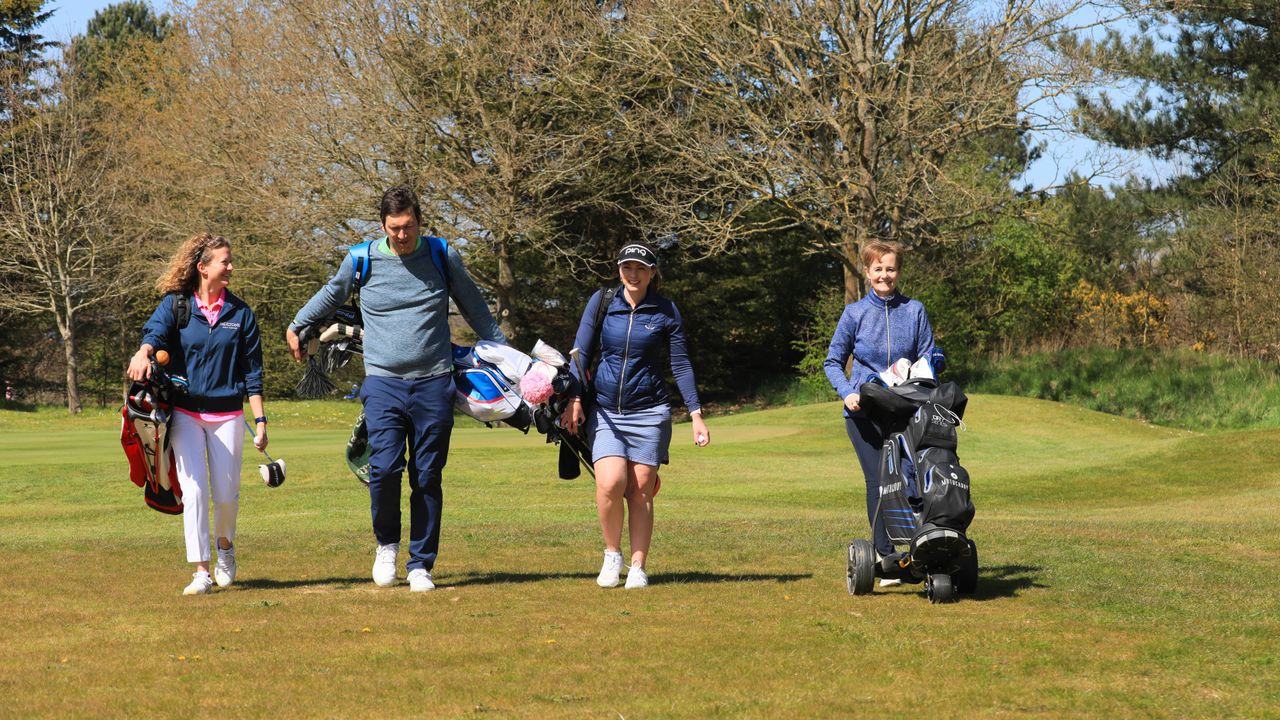
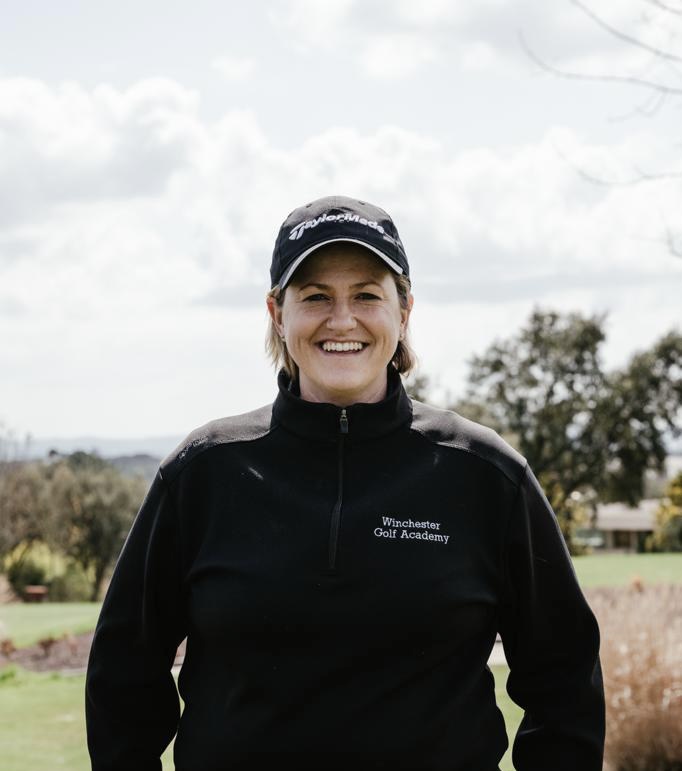
Being a coach that specialises in introducing women to the game, beginners and high handicappers are my bread and butter and something I am very passionate about. I often liken learning golf to learning to drive. You look around and it seems everyone can do it, so how hard can it be? Then you stall at the front of the queue at traffic lights and all hell breaks loose! Like new drivers, it doesn’t take much for experienced golfers to get frustrated by the antics of those new to the game.
When you have been doing something for a long time, it is all too easy to forget the difficulties of learning something new, so much so that there is a cognitive bias that explains this phenomenon called the 'curse of knowledge,' which is essentially, once you know something, or in this case, how to do something, it can be hard to put yourself in the shoes of those who don’t. I think this feeling can also apply to those who are off high handicaps, averagely good golfers can’t comprehend why all those extra shots are required.

Emma Booth teaching a group of female golfers
The introduction of the World Handicap System in 2020 saw the highest handicap available increase from 36 to 54, which works out roughly as 3 shots over par on each hole. It’s a move which disgruntled many with concerns that if you need that amount of shots, you are simply not good enough to be out on the course, along with the other worry being they will win every nett competition going. To be fair, that has been the experience of some club sections.
As a pro at a driving range, this means I’m no longer being immersed in golf club life, but I can only imagine how frustrating that must be for mid and low handicappers who lose out week after week to high handicappers, and there has been much discussion around this very issue.
From my perspective as a coach, my thoughts are…everyone has to start somewhere, or maybe they are exactly where they need to be. Having stood in a bay for thousands of hours with every level of golfer out there, I’m convinced more than ever that we are all bad at this game, just at different levels.
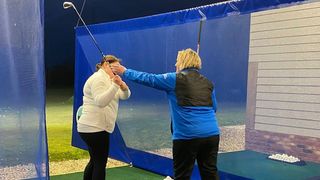
Before 54 was brought in, the highest handicap was 36, but there would still be golfers who were unable to play to 36. The truth is, those that have needed higher handicaps have always existed, it is just now they have a handicap where they have a chance of playing near par and in contention.
Overall, that is a good thing and more inclusive of different abilities. There will be some that play off 54 because they struggle to hit the ball well, and some who do not hit the ball very far due to lack of speed or physical limitation. Then there are those just starting out who have achieved a handicap quickly before continuing to work on their game.
Get the Golf Monthly Newsletter
Subscribe to the Golf Monthly newsletter to stay up to date with all the latest tour news, equipment news, reviews, head-to-heads and buyer’s guides from our team of experienced experts.
I have taught all those golfers in the last few months, along with some golfers who play off single figures. The one thing they all have in common is a fulfilling and meaningful enjoyment of the game of golf. Playing golf is important to them, it is part of their identity. The golf course is where they enjoy themselves away from the worries of the world with friends they have made through playing the game.
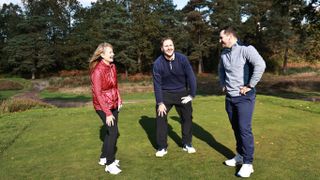
Enjoyment of the game is so important
Wonderful stuff I say. The older I get the more I have realised that the feeling you have to be good at something in order to enjoy it is one of the biggest lies. I regularly tell my daughters, “Do not let the fear of not ‘being good’ stop you from doing or trying anything. If it brings you joy, go for it!”
However, the issue golf has is that a certain demographic or ability level feels more ownership and entitlement to play and dominate time out on the course, but they don’t! Sport is and should be open to all, but the key to inclusivity requires self-awareness from all involved, especially clubs.
In order for golf to be accessible to all, clubs need to run competitions that are appropriate for ability levels. Think of it like skiing. If you put someone who loves double black diamond runs (steep and fast) with a green slope skier (not very steep and slow), neither skier is going to enjoy the rhythm, but when placed with the correct people, both can have a great day out on the slopes.
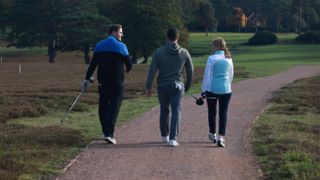
I can see the problem with this analogy, as there is often only one golf course at a venue that has to be shared. Those players with higher handicaps take longer to get round, hitting more shots does indeed take more time, but that is an issue of tee time management by individual clubs. If the course you play is often packed out and oversubscribed, that is a club management issue, not the fault of the individual golfers.
Self-awareness for golfers is also very important. If you play off a low handicap and have booked a tee time behind a group of higher category players, you are likely to be in for a slow round. On the flip side, if you play off 54 and are in the middle of a packed Saturday morning, the result will be similar. It’s no fun for anyone. Yes, everyone pays the same membership fee and has the right to play, but being mindful of the impact you could have on others enjoyment and the flow of play is something we are all equally responsible for.

All golfers must be aware of the pace of play
Like comedy, timing is everything. Golf’s handicap system is often touted as the great leveller, meaning anyone can play with anyone and to a certain extent that is true. However, when it comes to having enjoyable rounds, it is much more about the rhythm of the round and playing with others who are in the range of about 10 shots of your handicap. Of course, that’s not to say you can’t play with golfers worse or much better than you. Someone will be making a slight sacrifice in the pace of the game, but for the enjoyment of their company and playing together, it may well be worth it.
Lastly for those of you who are reading this as a newer golfer off 54, here are my 7 top tips for you to improve your golf.
1. Do not worry about being off 54
Having a starting point is always good, improvement cannot be measured if you don’t know how far you have come. Like running your first 5k and seeing your times get faster, when your shots get less this is part of the joy of progress, embrace it.
2. Have lessons
A good pro will be encouraging, set you realistic goals and create a manageable practice programme to follow. Golf can be a lonely endeavour, so having someone on your team to share your progress adds another element of enjoyment.
3. Do not play with anyone who makes you feel bad
For being a beginner or playing off 54. Those people are not worth your time and can find somewhere else to be a purist and grumpy. You have your reasons for playing golf and enjoying it and that is good enough.
4. Short game, short game, short game!
We all feel the obsession with hitting the longer shots and that is what the driving range business is set up for, but if you want to make quick progress, spend the majority of your time on the short game area and practice putting green. It has always fascinated me that a 20 handicap and below can all look similar tee to fairway, but it is the approach shots that really separate those that practice and those who don’t.
5. Play with golfers better than you
As mentioned above, look to play with other golfers who are about 10 shots better than you as a simple way to see where they are saving those 10 shots. Ask them what helped them to improve or made the difference to their golf.
6. Buy Custom fitted clubs
There is a preconceived idea that you have to be a certain ability before you get custom fitted clubs, but if anything, I would say the opposite is true! Pros have custom fit gear and they are exceptional, so us mere mortals need all the help we can get. I know all too well the difference having the right weighted shafts and more forgiving clubs can make, so find your nearest fitter and allow them to work their magic!
7. Course management is key
Look for patterns when you play. If there is a certain hole or type of shot you always struggle with, that is what you need to spend time practicing, or come up with a different solution. There is no shame in going around hazards if you are struggling to hit over them. As the phrases go, there are no pictures on a scorecard, and it is not how, it’s how many! So don’t be afraid to find your own path to that hole.
Emma has worked in the golf industry for more than 20 years. After a successful amateur career, she decided to pursue her true golfing passion of coaching and became a qualified PGA Professional in 2009. In 2015, alongside her husband Gary, who is also a PGA Professional, they set up and now run Winchester Golf Academy, a bespoke 24 bay practice facility offering not only all the latest technology but a highly regarded bistro. Emma is happy coaching all golfing abilities but particularly enjoys getting people into the game and developing programs to help women and juniors start and improve. Her 2022 Get into Golf program saw more than 60 women take up the game.
Emma is a member of TaylorMade’s Women’s Advisory Board, which works to shape the product offering and marketing strategy with the goal of making it the number one brand in golf for women. When not changing lives one swing tweak at a time Emma can be found enjoying life raising her three daughters and when time allows in the gym.
-
 'I Think We All Hoped It Would Have Been A Little Further Long, And That's No Secret' - Brooks Koepka's Echoes Recent Tough Love Towards LIV Golf
'I Think We All Hoped It Would Have Been A Little Further Long, And That's No Secret' - Brooks Koepka's Echoes Recent Tough Love Towards LIV GolfThe five-time Major champion said progress is being made with the PIF-backed circuit after stating it was "quite far behind" its rivals on The Joe Pomp Show
By Jonny Leighfield Published
-
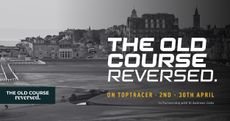 How You Can Play St Andrews Old Course In Reverse
How You Can Play St Andrews Old Course In ReverseYou can win a tee time on the 'reversed' Old Course at St Andrews next year by shooting the lowest gross score over the virtual links this April
By Elliott Heath Published
-
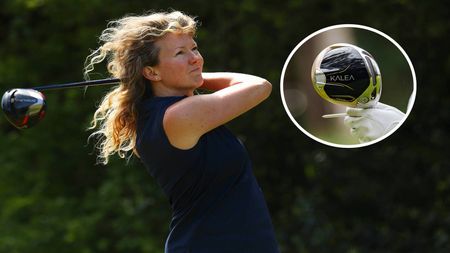 How Far Does The Average Female Club Golfer Hit Their Driver?
How Far Does The Average Female Club Golfer Hit Their Driver?We've looked at the data... Find out if you are hitting your driver an average distance
By Alison Root Published
-
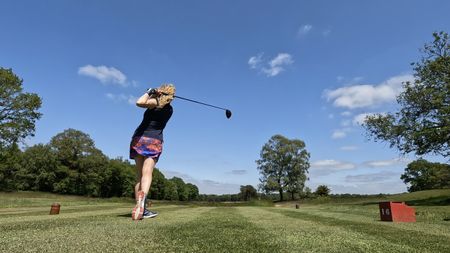 Tee Box Inequality: Why Aren't All Tees Rated For Women?
Tee Box Inequality: Why Aren't All Tees Rated For Women?Long-hitting female golfers are let down by tee ratings
By Katie Dawkins Published
-
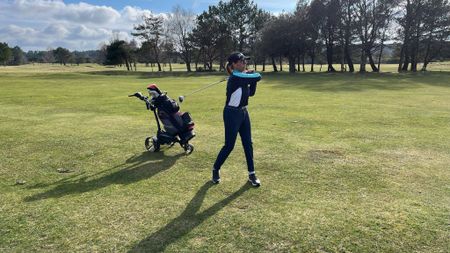 What I Learned From My First Golf Competition: The Unexpected Importance Of Preparation
What I Learned From My First Golf Competition: The Unexpected Importance Of PreparationPlaying in your first golf competition can be a daunting experience. Here are 5 tips to help you prepare for a stress-free round
By Carly Cummins Published
-
 I've Always Struggled To Create That Solid, Compressed Strike... Until I Fixed These 5 Key Moves
I've Always Struggled To Create That Solid, Compressed Strike... Until I Fixed These 5 Key MovesSingle figure golfer Jess Ratcliffe on how she has fixed her swing puzzle to deliver crisp shots
By Jess Ratcliffe Published
-
 Fix These 7 Common Mistakes And You'll Be On The Path To Lower Scores
Fix These 7 Common Mistakes And You'll Be On The Path To Lower ScoresPGA Professional Emma Booth on how to fix the mistakes all high handicappers make
By Emma Booth Published
-
 ‘It’s About Perception, Not Rules. Women Are Allowed To Wear A Lot More Than Men At Most Golf Courses’ - Mia Baker On Golf's Dress Code
‘It’s About Perception, Not Rules. Women Are Allowed To Wear A Lot More Than Men At Most Golf Courses’ - Mia Baker On Golf's Dress CodeContent creator and presenter Mia Baker on why changing mindsets is key to building a more inclusive golf community
By Alison Root Published
-
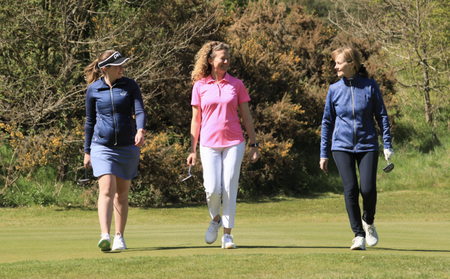 ‘Most Of The Time I Don’t Bother Signing Up’ - The Cliquey Culture Hurting Women’s Golf
‘Most Of The Time I Don’t Bother Signing Up’ - The Cliquey Culture Hurting Women’s GolfOur women's golf editor highlights an issue that is quietly pushing some female golfers to the sidelines
By Alison Root Published
-
 The One Mental Mistake Pro Golfers Never Make - Are You Guilty Of It?
The One Mental Mistake Pro Golfers Never Make - Are You Guilty Of It?Top 50 Coach Katie Dawkins shares her tips on how to mentally reset your golf game
By Katie Dawkins Published
